Travel Safety Tips Every Traveler Should Know

Nowadays criminals can be anyone, and they only get shrewder with time. Crimes of opportunity and crimes against property are a constant wherever you may be going. Whether you’re at home, across the country, or on another continent, no one is immune to crime. The following travel safety tips and travel gear won’t make you immune to crime, but they might decrease the chances of bad things happening.
Tip #1: Research the location you plan to visit–well ahead of time

Research your destination
Do this whether you’re planning a trip to Managua, Nicaragua or St. Louis, Missouri. For overseas travel, visit the website for the US Department of State to get the latest bulletins of any dangers before you go.
Tip #2: Research the safety of a location before you book your hotel or other accommodations
Nowadays, people who express legitimate fears about venturing into higher-crime areas are afraid of being labeled racist, insular, paranoid or whatever. Ultra-PC apologetics and sympathy for criminals often take the place of common sense. Having some healthy fear is natural, rational and protective; having relatively more fear in a more dangerous place is a survival instinct that kept our ancestors alive. Having fear in certain areas where there are a lot of shootings and physical fights is not racist; it’s being sane. If you find yourself turned around, and it’s getting dark, look for landmarks. If you need to take shelter, look for a busy public place (e.g. restaurant, café, store) where you can call for help.
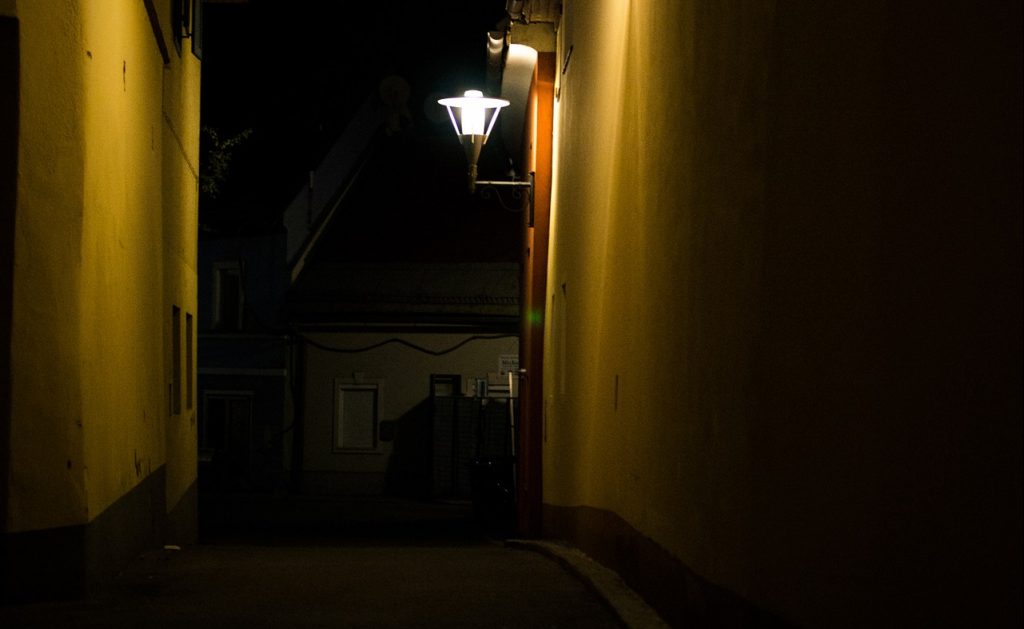
Don’t go down deserted streets
Despite the advice of many articles–don’t go anywhere you wouldn’t go in your own city—this advice can fall short. When you’re visiting an unfamiliar area, you can’t always tell just by appearances which areas might be safer than others. In my hometown of Milwaukee, Wisconsin, although certain areas might appear a bit rundown in parts (and slightly eerie after dark), those same areas might have statistically lower crime rates than some leafy-looking neighborhoods stocked with beautiful brick and lannon stone buildings. It’s best to do your research before you travel anywhere. You might get the CrimeMapping.com mobile app to learn about crime in any part of the United States (note the time of day that the crimes happened). Visit Lonely Planet and Trip Advisor to read unbiased reviews from other travelers on a variety of topics, safety being a big one.
Tip #3: At a hotel, don’t open the door if you can’t be sure who’s there
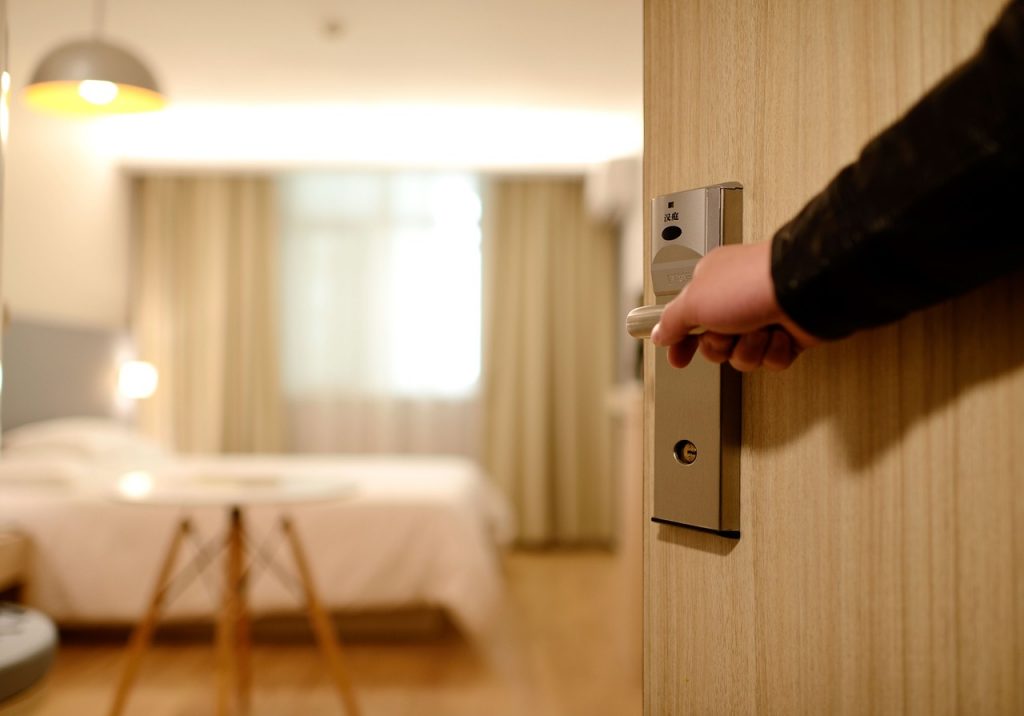
Careful when opening your hotel door to someone
Thieves and others with bad intentions count on exploiting the element of surprise. They might knock on the door and tell you there’s a fire and then knock you over and get into your room and rob you, or worse. Some pose as service people to gain entry. Some will guilt-trip you. Talk to people through the door, if at all. When you’re alone in any number of areas, you simply can’t afford to worry about being polite to strangers.
Think about how you behave at home. People who knock on doors are strangers who need to be vetted, and they can be an intrusion and even a nuisance if you value your privacy or work from a home office (a good reason to post a sign: no religious solicitation or door-to-door sales). It seems reasonable to apply similar behavior when you stay at a hotel. Don’t worry about “hurting feelings” when others intrude on your space. If you value your safety and privacy, ignore the door and carry on. Call me xenophobic, but let’s see who still has her purse at the end of the trip.
Tip #4: Don’t carry your laptop in a case that is obviously for a laptop
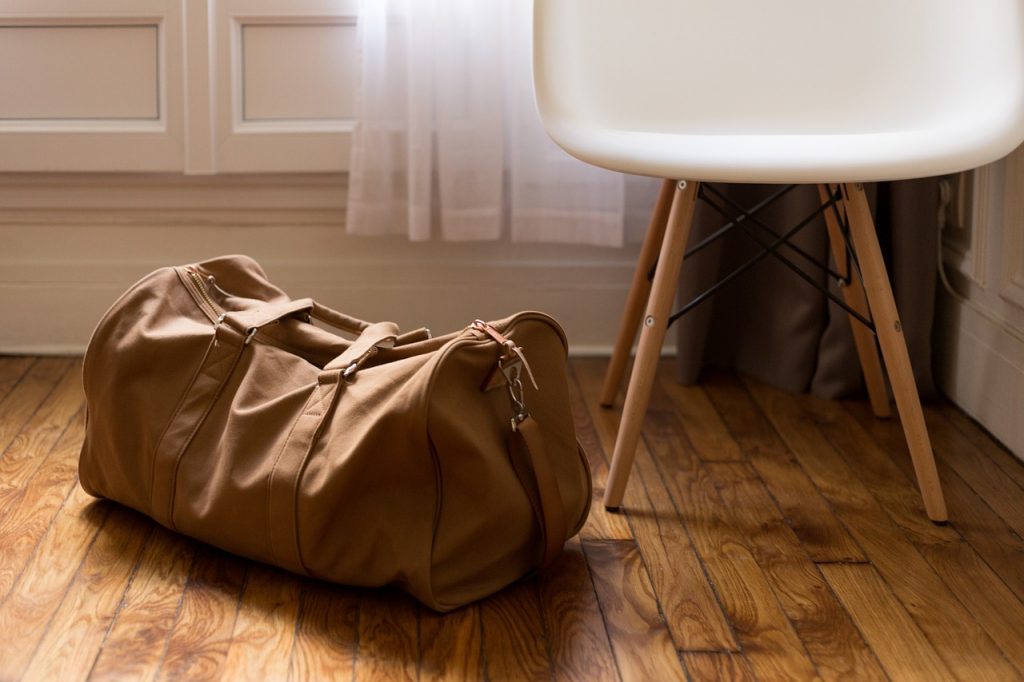
Hide your laptop in a duffle bag instead of a laptop bag
Laptops are hot property in 2016 and frequently stolen. Keep your laptop in a backpack or something less obvious, and don’t let it out of your sight. Don’t advertise your laptop where you are staying; carry it discreetly.
You might consider getting a Kensington lock to secure your laptop when you leave your hotel. Use it at airports or in any public places where someone could grab your laptop.
Tip #5: Travel low key
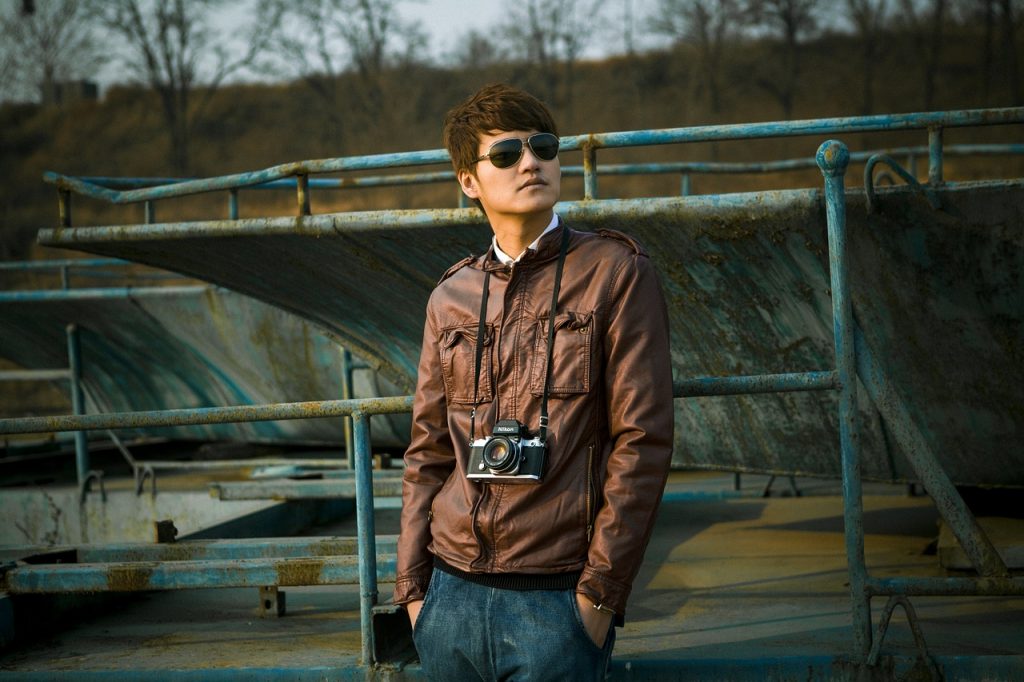
Try not to show off your belongings
Wearing gold beads or a fancy SLR around your neck is the equivalent of wearing a kick me sign. Also part of being low key is blending in. If you’re visiting a foreign country for the first time, study what to wear and what not to for various situations and venues. White sneakers are a telltale sign of the American tourist. A fanny pack is a nice tribute to the 1990s but will also earmark you as an American. Being glued to a tourist map will make you stand out anywhere.
Tip #6: Be alert to your surroundings
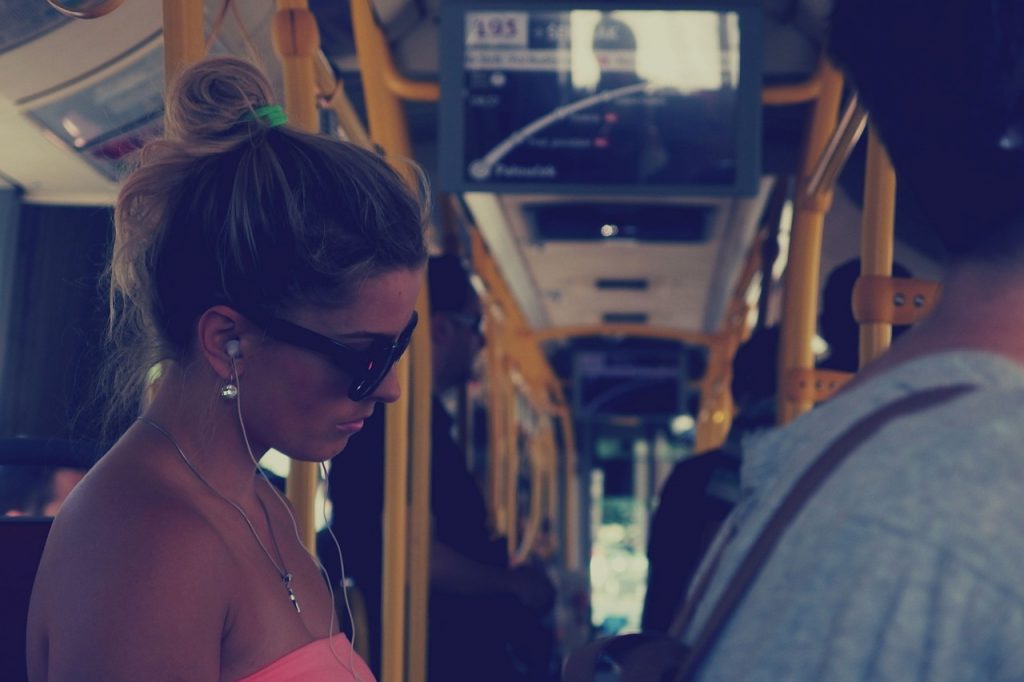
Be aware of your surroundings
Plenty of crimes happen in broad daylight, even when you are paying attention. If you’re distracted, you will stand out and make yourself more vulnerable. Talking on the phone using earbuds at 2:30 a.m. while meandering along a dimly lit area is not advised. Change your behavior at night (same as you would in your hometown after dark) and don’t get lost in your head.
Tip #7: Be extra careful at transition points in airports
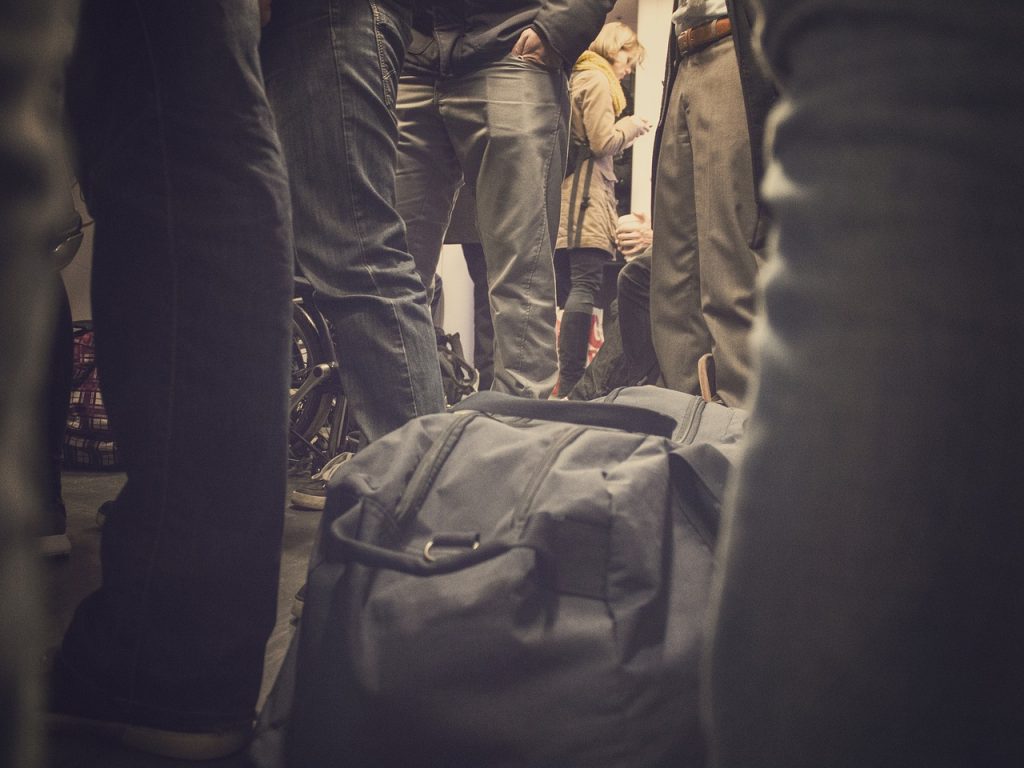
Be on alert in crowded places
Although crimes happen in dark, deserted parking structures, they can also happen in crowded airports, where criminals hide in plain sight. Watch out for transition points in airports, which are the favored spots for thieves. Be on the alert at baggage claim areas. Put tags and ownership information outside and inside your luggage. Keep all belongings in front of you when riding on escalators. Use any small bag that you can wear in front of you cross-body. Keep your possessions within your field of vision. You might try wearing a small bag over or underneath your clothes. Think of it as your secret hidden stash. You might try the RFID blocking neck stash.
Also, beware the ticket counter, where one thief might try to distract you by trying to sell you an upgrade while an accomplice runs off with your bag. Sometimes a thief will spill things on you or bump into you, while a second actor steals your property. Always keep your belongings in your field of vision at all times and do not set things down for a second (the perfect way to say goodbye to your cell phone). Be aware of your possessions as you would be anywhere, and don’t let them out of your field of vision (at least not the ones you hope to keep).
Being alert will also enhance your enjoyment and perceptions of the good things at your destination. And having TSA-approved luggage locks with SearchAlert can bring extra peace of mind; plus, the airport security staff won’t just snip it off and leave your baggage unlocked. The Search Alert feature lets you know if the TSA has opened your luggage.
Tip #8: Use a phony wallet
We’ve written before about carrying a dummy wallet (as a decoy) and also carrying a real wallet. This is one way to outsmart a pickpocket. You just want to get rid of people who do this, and a decoy wallet might be enough to satisfy them. Place a few expired cards in the wallet and a few bills. Limit what you carry on your person. An RFID blocking credit card sleeve and an RFID blocking money belt are good alternatives which take the wallet out of the equation, not to mention protect your identity.
Tip #9: Safe use of taxis
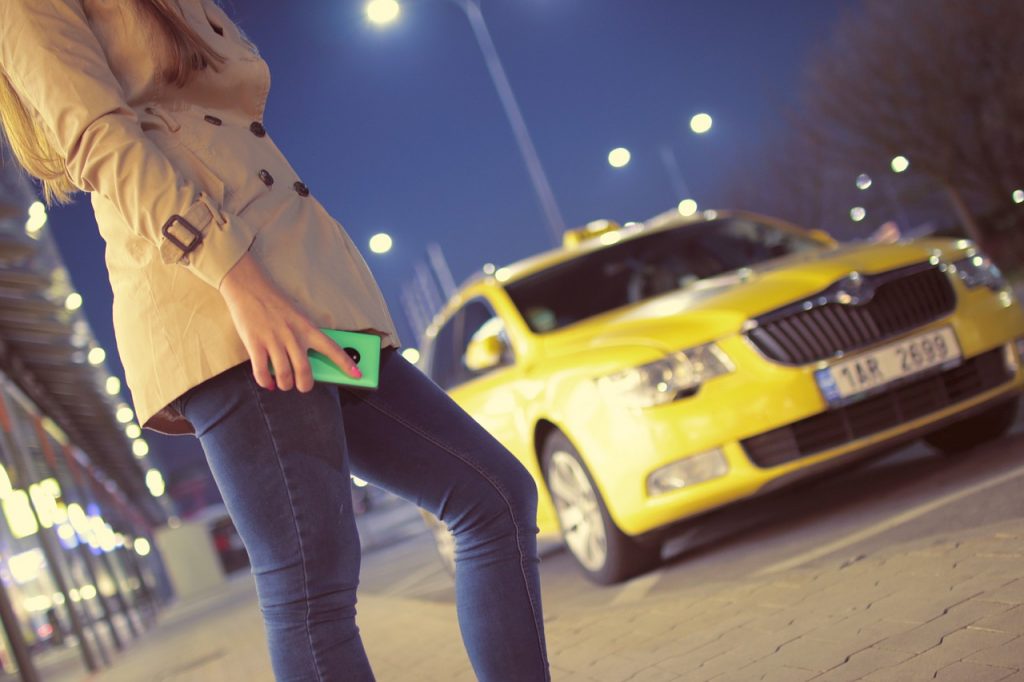
Have the hotel call you a taxi
Riding in a taxi is not always safe, especially for solitary women who may have had a few drinks. Hailing a cab is risky; don’t do this. Instead, ask your hotel to arrange the cab or, failing that, order a cab directly from a large, well-known company, and ask for the driver’s name. When the driver arrives, ask his name and make sure the name you’re given matches the driver’s license photo inside the cab. Get the plate number of the cab and the contact information of the operator. If the plate number and the cab name written on the outside doors don’t match, don’t get in. If you do get into the cab, text these details about the cab to loved ones who may be waiting for you.
Be cautious with using ridesharing companies, some of them may be riskier than taking a cab for the following reasons; ridesharing cars could be any cars; taxis are at least readily identifiable with a phone number on the outside door. What’s more, in most cities, taxi owners and operators are at least held accountable for claims filed against them, which would seem to make them the lower risk.
For women traveling alone, they may want to stick to traditional cabs. Although, there are now alternatives: She Rides is an exclusive ridesharing service offering women drivers for women passengers (and children). As these companies are very new, they tend to be only available in limited cities. That should change quickly because their business model answers an enormous need: freedom for women drivers and passengers alike.
Tip #10: If you are a novice, anxious traveler…
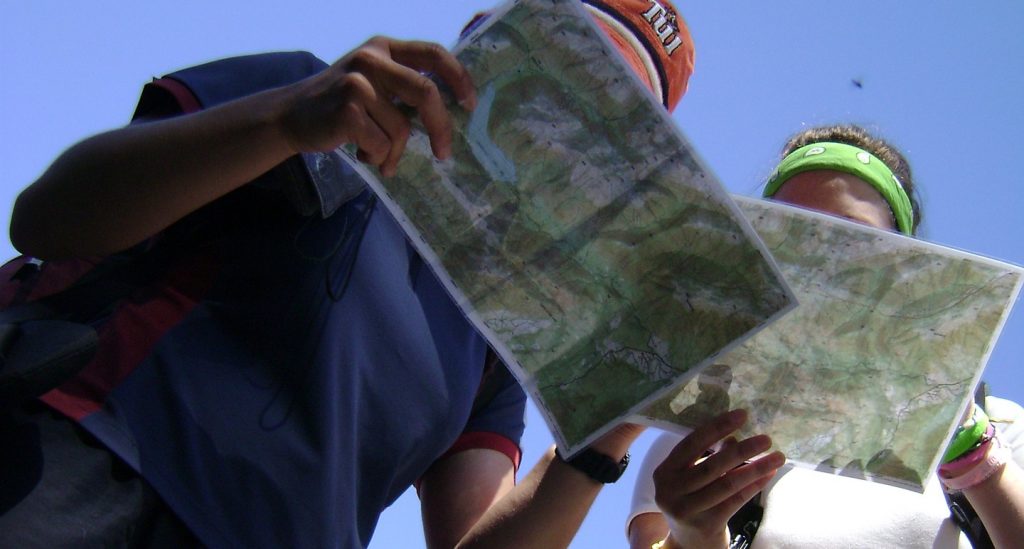
Sticking to the tourist areas
You may feel safer by sticking fairly closely to the tourist circuit. If you like to go off the beaten path you may want to take self-defense classes or carry a high-quality self-defense spray (a keychain of mace is nice, be sure it’s legal at your destination or you could end up being tagged the criminal). This should make you feel more confident in potentially dangerous situations.
You may also want to take it easy on the alcohol, especially if you’re traveling alone, your guard will be down, and you’ll be more vulnerable.
These travel tips will help keep you safe in your travels. Listen to your gut, don’t be overly concerned with “hurting the feelings” of strangers, and keep your possessions within your view and you will drastically reduce your chances of being a crime victim during your trip.
Written by Katie Anton
Need Help?
customercare@tarriss.com

